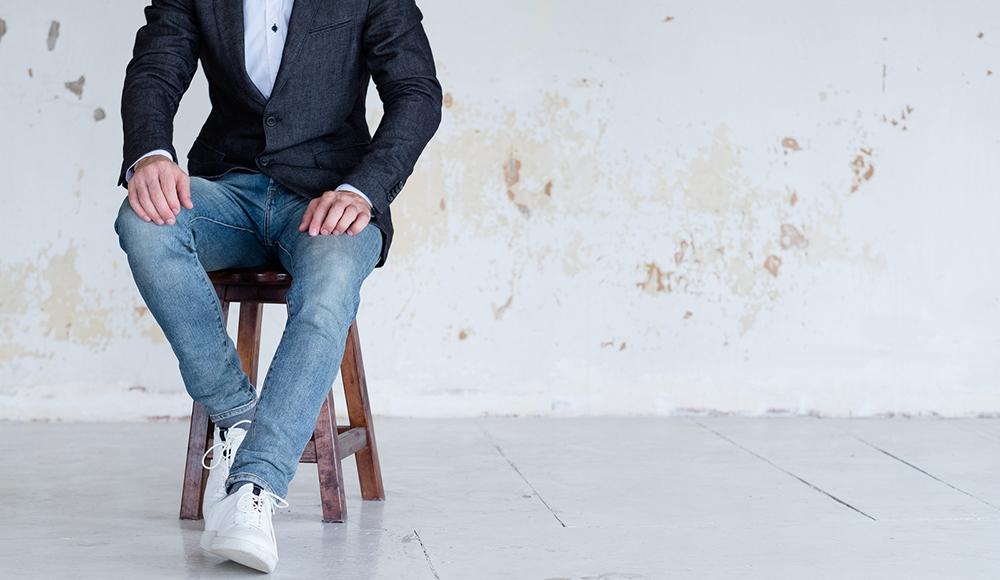
Why a Casual Dress Code Might Be the Best Work Perk of All

Office dress code policies are changing with the times, and it’s not just Silicon Valley tech startups getting in on the trend. Goldman Sachs made waves recently when it announced it was ditching the mandatory suits and ties in favor of a more flexible dress code.
More and more companies are moving away from formal business attire and embracing casual dress in the office. In fact, 50 percent of the respondents to SHRM’s “2018 Employee Benefits” survey said their companies allow workers to dress down whenever they want.
While everyone likes to be comfortable at work, many don’t realize that a casual dress code has perks far beyond convenience. From serious financial savings to happier employees, here are some of the biggest benefits of working for a company that doesn’t have a strict dress code:
1. You’ll Save Money
“The most obvious benefit is avoiding the cost of an elaborate wardrobe,” says workplace expert and author Lynn Taylor. “Also, the dry-cleaning costs can add up to the point where you’re paying more in dry cleaning than you are for the actual clothing.”
Buying work clothes isn’t a one-and-done deal. Yes, you’ll feel the upfront investment most, but maintaining a professional wardrobe requires sprucing up your closet as you move through your career. That’s on top of having to buy everyday clothes to wear outside of work. The average American household already spends a whopping $1,833 annually on apparel and clothing services, according to the Bureau of Labor Statistics. When you take away the need for a whole separate workplace wardrobe, you can cut that bill significantly.
Moreover, female employees are often hit harder than their male colleagues by strict dress codes. A now famous 2015 New York Department of Consumer Affairs report found that adult women’s clothing costs, on average, 8 percent more than adult men’s clothing. In a sense, then, a casual dress code can also be perceived as a step toward workplace equality.
2. It’ll Make You Happier at Work
Research suggests clothing has a direct impact on our mood, our thoughts, and our behavior. A study from Northwestern University found that people perform better on attention-related tasks when wearing a doctor’s white lab coat. When participants were given the same coat but told it was a painter’s coat instead, they did not get the same performance boost.
The suggestion here is that the clothes we wear appear to influence how we think and act. If you were to don an outfit that made you feel more confident, you just might begin to act more confidently. Not all of us feel that confidence in traditional business attire, so a casual dress code gives more people the chance to wear clothes that do improve their moods.
“People just want to be comfortable, and it’s just a more empowering feeling going to work and knowing that you can be yourself and not feel uptight in restrictive clothing,” Taylor says.
Taylor also notes that feeling physically unrestricted can potentially improve how we relate to others in the workplace: “About 10 or 15 years ago, most men and women had to wear blazers to work. That kind of physically restrictive feeling can sort of stretch into feeling restricted interpersonally.”
For more professional success tips, check out the latest issue of Recruiter.com Magazine:
3. You’ll Feel More Connected to Your Company
Dress codes reflect company cultures. A more relaxed dress code implies a more relaxed office culture — which is no small thing, according to Taylor.
“When you apply to a company and it has a more casual and relaxed dress code, that tells [employees] right away it has a more open, friendly work environment,” Taylor says. “It sort of sends an underlying message that as an employer, you might care about your employees. It’s a good feeling.”
It’s little wonder that dressing down appears to go hand in hand with employee retention. A 2017 survey from staffing firm OfficeTeam found that 56 percent of employees prefer to wear more relaxed clothing at work. What’s more, when it comes to accepting a job offer, more than 50 percent of job seekers see a company’s dress code as either “very important” or “moderately important,” according to Salary.com.
Dress Code No-Nos
A company may be super relaxed with its dress code policy, but that doesn’t mean there are no standards. Opting for beachwear, cut-offs, or ripped denim is never a good idea, according to Taylor. The same goes for T-shirts with offensive language or religious undertones.
One other thing to keep in mind is client relations. Just because your company embraces casual attire doesn’t mean everyone else does.
“It’s always good if you’re in an office situation to have a blazer and pants handy, just in case you’re called into a client meeting last-minute,” Taylor says. “At first, err on the side of conservatism with clients. If a client makes a wisecrack or says, ‘Boy, you’re dressed up today,’ and they’re always in jeans, then you can start shifting.”
Marianne Hayes is a longtime freelance writer and content marketing specialist.
<!–
–> <!–